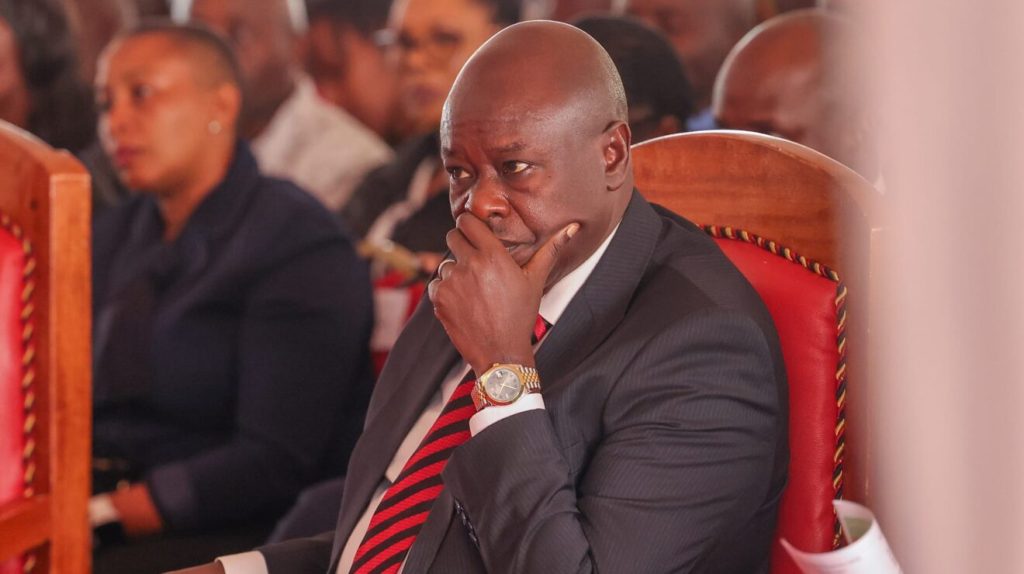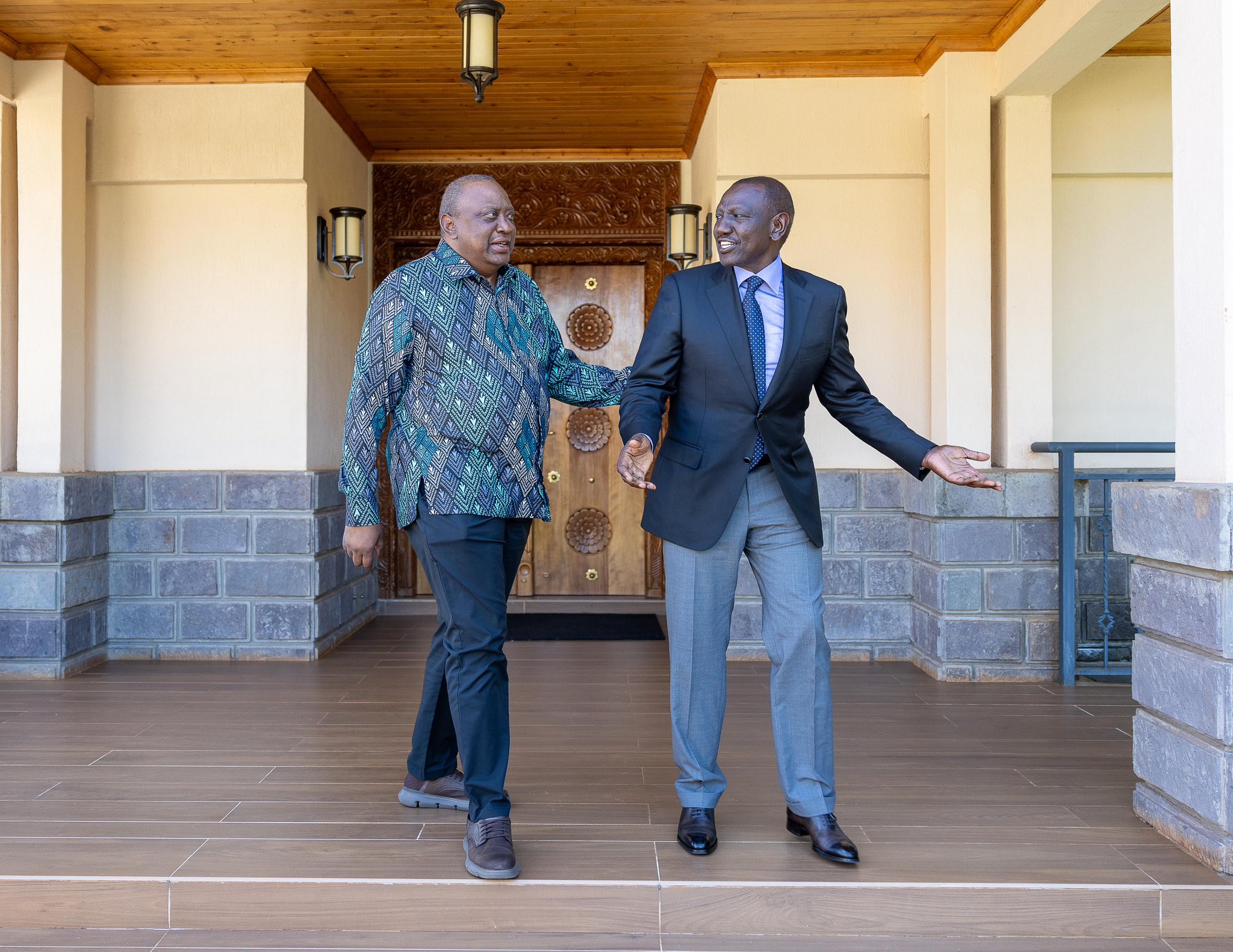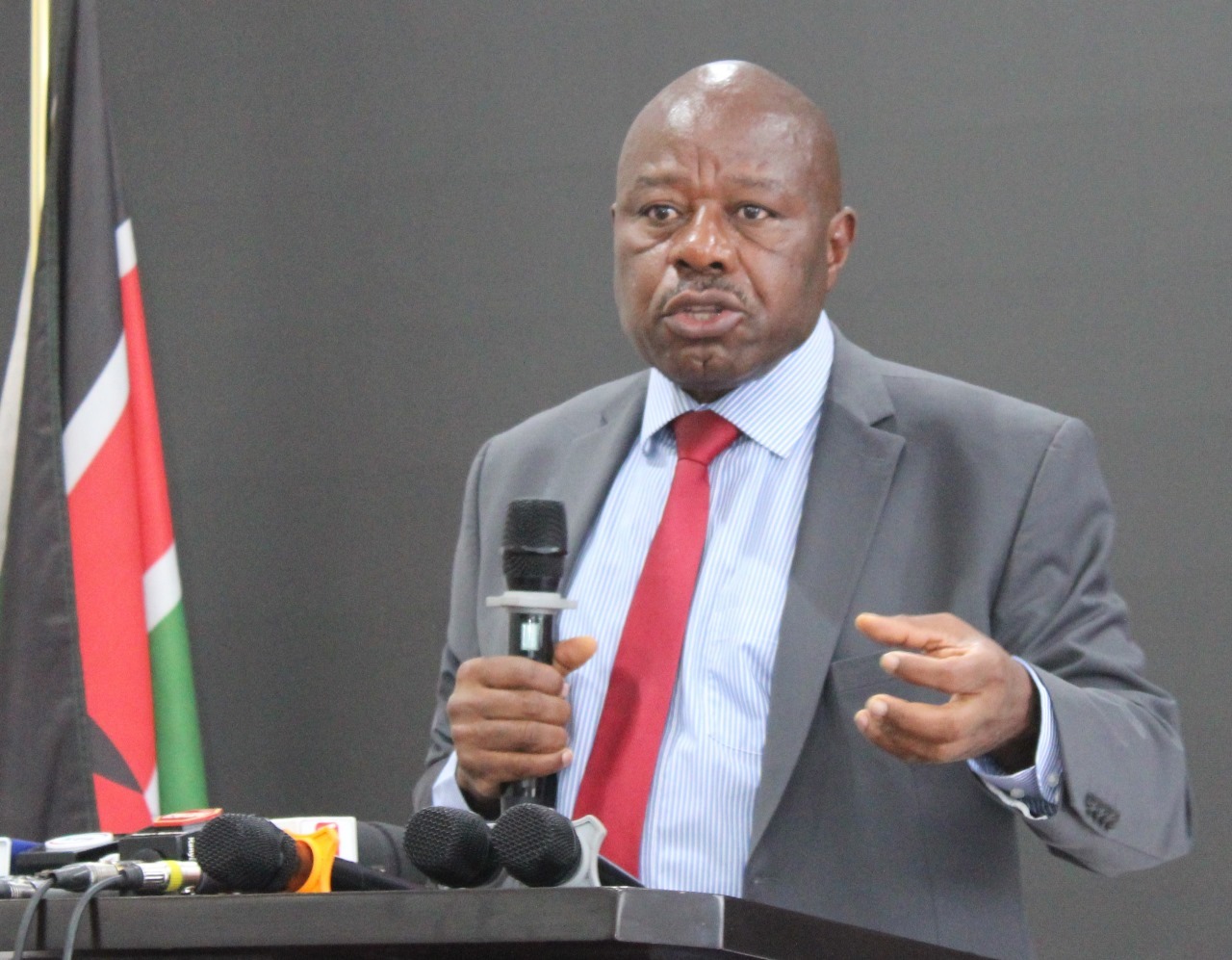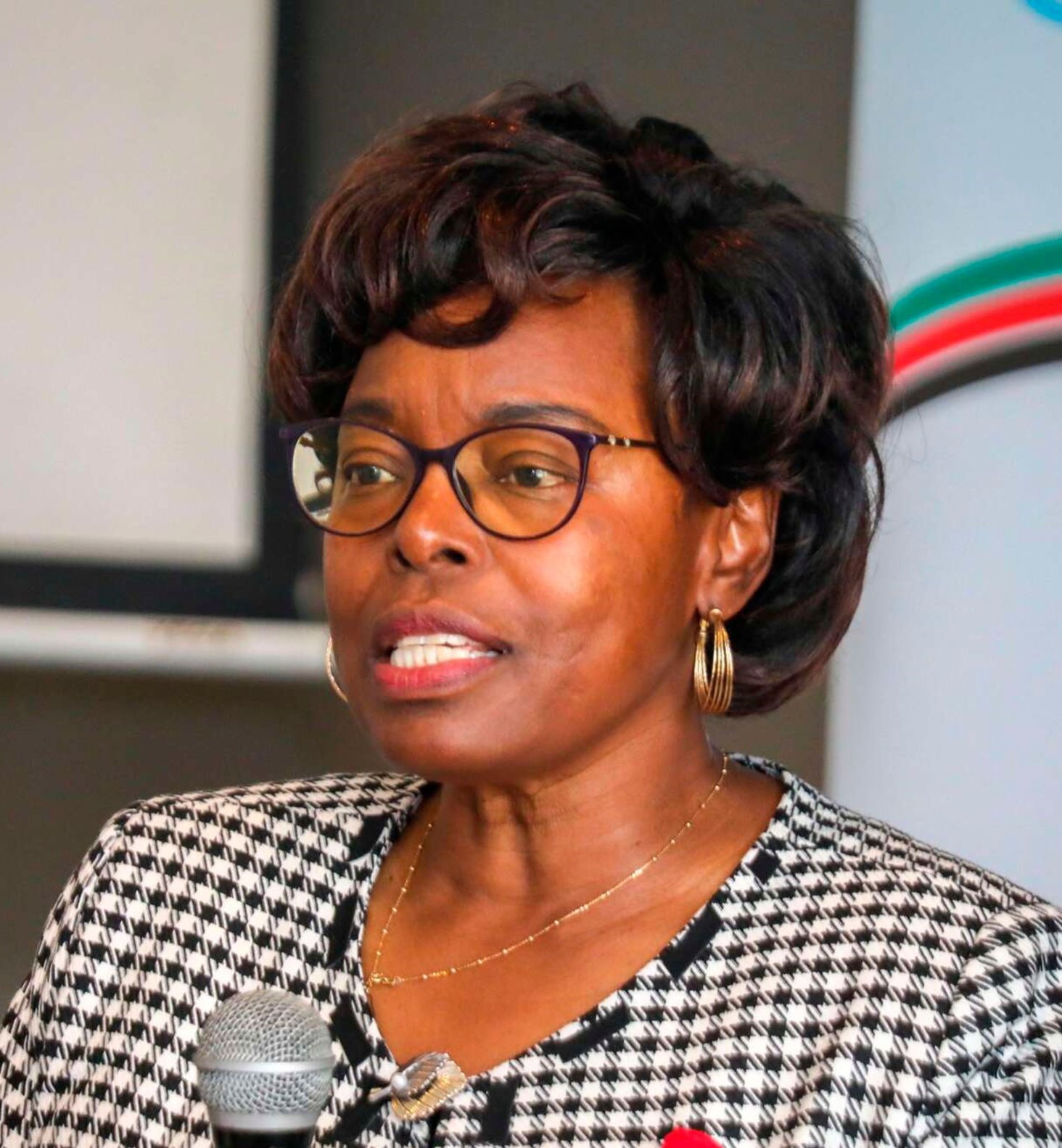Rigathi Gachagua had previously harboured hopes of mending ties with Uhuru to unite their ‘team’ against President Ruto. However, his repeated attempts at reconciliation with the former president were rebuffed. In one notable incident, Gachagua reportedly waited for three hours at a Nairobi hotel for a scheduled meeting with Uhuru, only for the meeting to be abruptly cancelled by a representative of the former president. In another instance, during Kalonzo Musyoka’s daughter’s wedding, Uhuru allegedly refused to share the stage with Gachagua. This prompted Kalonzo to invite only Uhuru to the event, effectively rescinding Gachagua’s invitation
The highly publicized ‘handshake’ between President William Ruto and former President Uhuru Kenyatta has significantly reshaped the political dynamics within the Mount Kenya region. Political analysts argue that this new alliance has created serious challenges for former Deputy President Rigathi Gachagua, whose political career now faces unprecedented hurdles.
Mr Gachagua finds himself in a precarious position, with his political trajectory seemingly unravelling further following his recent impeachment from office. The rapprochement between Ruto and Uhuru has left him scrambling to navigate shifting allegiances and power structures within the region.

Sources reveal that Gachagua had previously harboured hopes of mending ties with Uhuru to unite their ‘team’ against President Ruto. However, his repeated attempts at reconciliation with the former president have been rebuffed. In one notable incident, Gachagua reportedly waited for three hours at a Nairobi hotel for a scheduled meeting with Uhuru, only for the meeting to be abruptly cancelled by a representative of the former president.
In another instance, during Kalonzo Musyoka’s daughter’s wedding, Uhuru allegedly refused to share the stage with Gachagua. This led to Kalonzo inviting only Uhuru to the event, effectively rescinding Gachagua’s invitation.
Gachagua has confided to close allies that collaboration with Uhuru is now unlikely. As a result, he is focusing on devising strategies to counter both Ruto and Uhuru ahead of the 2027 elections. His inner circle has advised him to reassess his political approach, acknowledging that the handshake has left him as the biggest loser in Mount Kenya politics.
One of Gachagua’s key strategies involves forming a new political party rooted in the Mount Kenya region. This party would oppose Uhuru’s Jubilee Party and serve as a platform for dissenting voices, including MPs, Senators, Governors, and MCAs who are aligned against Ruto.
Additionally, Gachagua plans to rally elected officials and former leaders to coalesce around his vision, drawing inspiration from Ruto’s Tanga Tanga faction during his tenure as Deputy President under Uhuru Kenyatta. His objective is to consolidate support from a majority of Mount Kenya’s elected leaders to present a unified front against the Ruto administration.
However, analysts question whether this strategy can sustain anti-Ruto sentiment through to the 2027 elections, especially given Ruto’s efforts to neutralize Gachagua’s influence in the region. By aligning with Uhuru, Ruto has strategically sought to leverage the former president’s leadership in Mount Kenya to maintain a firm grip on the region’s politics.
Gachagua remains resolute in his pursuit of a political base to challenge both Uhuru and Ruto. Yet, with mounting challenges, the question persists: Can he successfully navigate the shifting political landscape and emerge victorious in the 2027 polls?





